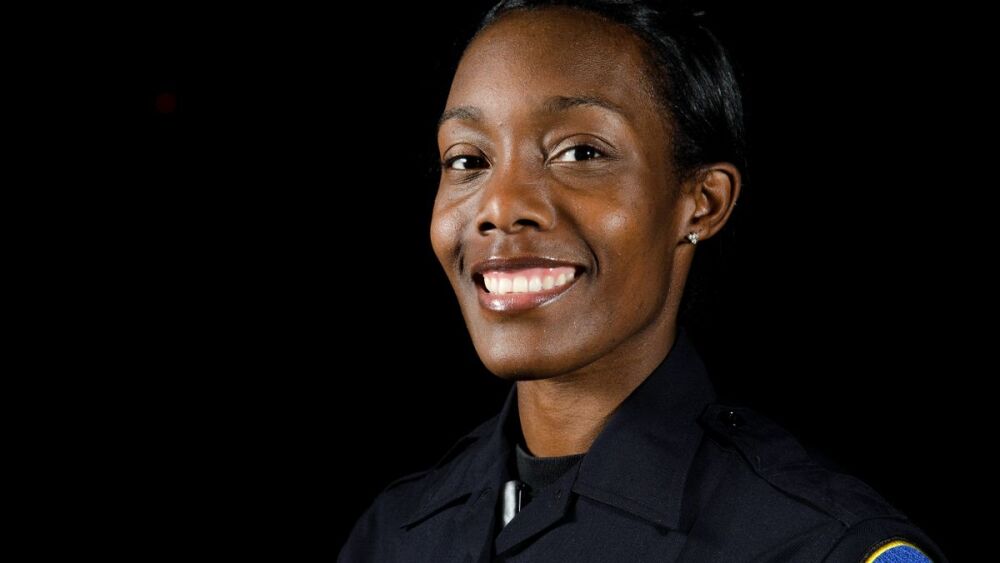This article originally appeared in the March 2021 Police1 Leadership Briefing. To read the full briefing, visit Cost of crime | LAPD protest report | Scene management, and add the Leadership Briefing to your subscriptions.
Members of commissions and task forces, politicians and community advocates have recognized the need for more diverse police forces for almost 100 years. In 1931, the Wickersham Commission determined there were conflicts between patrolmen and citizens that stemmed from a lack of cultural understanding by the patrolmen and the unwillingness of citizens to cooperate with patrolmen due to the citizen’s mistrust. Over 80 years later in 2015, the President’s Task Force on 21st Century Policing also identified the need for a more diverse police force.
In December 2020, an empirical research study was conducted with 15 minority entrance-level police recruits at two police academies in Maryland. The participants consisted of six males and nine females. The academies included recruits from municipal police agencies, as well as sheriff’s deputies.
In light of the difficulty attracting applicants to the law enforcement profession, especially minorities, the recruits were asked to describe their recruitment processes.
Motivating factors for applying
The majority of the recruits described the process as good. The most common motivator to apply to become a police officer was knowing someone in the hiring agency. The number one influence was having an existing relationship with the hiring agency and the top three experiences were employment as a seasonal officer, internships and ride-alongs.
This differs from existing research that depicts the generational aspect of law enforcement recruiting with applicants following a family member into the profession. Instead of following a family member into the profession, minority recruits applied because a relationship had been established with someone in the agency.
In an effort to attract more applicants, agencies may want to evaluate their personal relationships with potential applicants.
Balanced investigations, focus on the applicant
Two recruits described progressing through the application process with more than one agency. These recruits had applied to a combined total of 17 agencies, making it to the background investigation, and then receiving a rejection letter several weeks or months later.
Both recruits described finally meeting a background investigator who was willing to dig a little deeper, attributing a comprehensive background investigation as the reason they were finally hired. Their experiences raise the question, “Are good applicants being rejected because a reference provides derogatory information?” After all, the individuals providing the references are not being investigated and their integrity is not being scrutinized. The challenge is to make sure the investigation is balanced and focused on the integrity of the applicant.
Use technology to expedite applications
A few recruits described the hiring process as tedious, overwhelming and lengthy. Specifically, they found the process to be stressful because of the amount of information the application packet required, the polygraph, or the wait for information.
Existing technology can help expedite applications and streamline the process, yet agencies remain committed to a lengthy, expensive and burdensome process. The ability to expedite the process was described by female recruits in one of the academies. Other agencies were competing to hire them so the hiring agency fast-tracked them to prevent losing them to other law enforcement agencies.
A desire to be role models
Family and community influences were also important to the recruitment process.
Several of the male recruits described a desire to be role models for younger minorities in their communities. In addition to having a desire to be a role model, the recruits who reported the desire to be a role model also had the experience of leaving their communities for a period of time.
One recruit reported that when he returned from the military, he realized his potential to be a role model for youth in his community who might not realize there are police officers who look like them. Two other recruits reported a similar realization after leaving their communities for a period of time to attend college and work.
All of the recruits believed it was important to show young people that there are police officers who look like them. A few female recruits described being asked about their experiences to become police officers, realizing the potential they have to be role models.
The research did not focus on the current climate or attitudes about policing that has been prevalent in the media since at least 2014; yet almost all of the recruits described a desire to improve relationships between police and citizens.
Our employees are our best recruiters
Given the positive experiences described by the minority participants in this study, it may be time to build on the belief that our employees are our best recruiters, encouraging them to be a voice to family members, friends and every person they come into contact with who are curious about the profession.
You never know where an applicant comes from, one recruit had worked in customer service for eight years and decided to make a career change, choosing a profession where she felt she could give back to her community.
NEXT: Proactively recruiting in schools and minority communities



